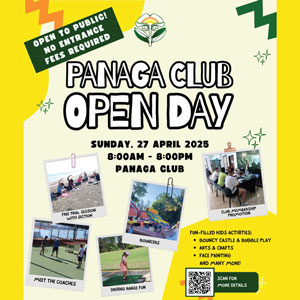James Kon
The National Digital Forensic Lab (NDFL) has handled 561 cases, whether in the form of cyber-enable crime or cyber-dependent crime from law enforcement agencies, in the past five years, from 2018 to January 2023, said Minister of Transport and Infocommunications Yang Berhormat Pengiran Dato Seri Setia Shamhary bin Pengiran Dato Paduka Haji Mustapha.
He added that there were as many as 2,641 items of digital evidence, including computers, mobile phones, storage media and digital services, which have been used to obtain ISO 17025:2017 accreditation in the field of forensic testing from the American National Standards Institute which was the National Accreditation Board in 2022.
The minister said this during the 19th Legislative Council (LegCo) session yesterday in response to an issue raised by LegCo member Yang Berhormat Haji Salleh Bostaman bin Haji Zainal Abidin on whether authorities provide forensic evidence for a digital crime to help the victims, make a police case and trace and return stolen money.
The minister said the Cyber Security Brunei (CSB) obtained certification for its three core services – Brunei Computer Emergency Response Team (BruCERT), WC and NDFL – in January 2023.
The minister also shared that the Cyber Security Order is in the final stage of amendment.
Existing laws can be used for offences related to cybercrime, such as the Penal Code, Computer Misuse Act and Public Order Act.
For offences related to the CSB, there is cooperation with the police on enforcement.
He stressed that there is a need for cross-border cybercrime investigations. CSB, through the NDFL, will work with the Royal Brunei Police Force, as the Interpol National Central Bureau for Brunei Darussalam, to cooperate with law enforcement agencies and cybercrime agencies outside of the country.

Several issues were also raised by LegCo member Yang Berhormat Pehin Orang Kaya Laila Setia Dato Seri Setia Awang Haji Abdul Rahman bin Haji lbrahim on the achievement for digital transformation and Smart Nations Initiatives.
He cited that 10 to 15 years ago, the government spent nearly BND1 billion for computerisation programmes, including providing infrastructure to deliver services to the public digitally, which is still an unfulfilled aspiration.
Yang Berhormat Pengiran Dato Seri Setia Shamhary said the majority of matters needing to be addressed are related to human resources, project management and change management.
He added, “Digitalisation requires a change in mindset and work procedures. We have invested a lot in systems that don’t achieve intended objectives because of the lack of follow-up in terms of change management.”
Meanwhile, LegCo member Yang Berhormat Pengiran Haji Isa bin Pengiran Haji Aliuddin raised parents’ concerns on inappropriate pop-up advertisements, especially on children’s smartphones.
The minister said, “There is a committee that handles content management and investigates complaints on websites that are unsuitable for the public.
“However, the majority of the content is on the device itself, where the artificial intelligence (AI) system detects previously visited websites which cause pop-up advertisements.
Therefore, we need to clean up cookies and caches in our own devices.”
He added, “The Authority for Info-communications Technology Industry of Brunei Darussalam (AITI) and CSB have advised on this and the public can also contact them to learn how to block unsuitable websites on devices.“
Yang Berhormat Pengiran Dato Seri Setia Shamhary also responded to the issues raised by LegCo member Yang Berhormat Chong Chin Yee on how the majority of victims of online scams are over the age of 60, how the Sultanate is not listed in the Network Readiness Index (NRI), as well as suggestions on digital comprehensive framework to evaluate social literacy among the people to promote digital inclusivity and increase infocommunication and technology (ICT) skills.
The minister said, “The Ministry of Transport and Infocommunications (MTIC) has been carrying out several initiatives, such as ICT savviness programmes hosted by AITI since 2017, which aims to provide public understanding and awareness on the importance of ICT not only in daily life but also when venturing into entrepreneurship.
“The programme includes short workshops for village consultative councils such as web designing, digital marketing and basic digital literacy.”
He added, “In 2019 and 2020, AITI also held workshops on e-commerce to educate and encourage public to buy and sell online. The modules included how to use e-commerce platforms, online safety tips, introduction to mobile apps such as QueUP and Dart, the use of social media such as Facebook and Instagram, and basic digital literacy such as the use of Microsoft Office.”
AITI’s digital skill training targets three groups – senior citizen centres, single mothers and village consultative councils.
“Research on households and businesses has also been carried out to assess the level of digital literacy and ICT use among citizens and residents in Brunei Darussalam through a survey every three years.”
The latest survey was conducted at the end of 2022.
“The initial findings indicated that 54 per cent of respondents had basic ICT skills while 61 per cent of the respondents were at standard skills level, which includes using basic arithmetic formulae in spreadsheets and creating presentations. Meanwhile, 31 per cent were at the advanced level.
“The findings of the survey will be published after the analysis work is completed. From the survey report in 2019, it was found that 95 per cent of respondents use the Internet everyday.”
The minister also said the last time Brunei Darussalam was listed in the NRI was in 2014, when it was ranked 45 out of 148 countries, adding that after that the country was not listed due to insufficient data being provided, such as measures on high tech, medium high-tech manufacturing, commitment to Jet Hub, future technologies including investments in emerging technologies and robot density and AI scientific applications.
“MITC and AITI will refer to a suitable international index as benchmark and reference material to strengthen the development of ICT,” the minister said. “Among them are ICT development index published by the International Telecommunication Union (ITU), E-Government Development Index (EGDI) under the United Nations and Digital Skills index and initiatives under Asia-Pacific Economic Cooperation (APEC), which Brunei Darussalam is a member to.”
Under the EGDI, the country was 68th out of 193 in 2022. The Digital Skills Gap Index (DSGI), under the APEC, examines the position of 134 economies in the readiness of an economy in the digital skills required for sustainable growth, recovery and prosperity.
In 2021, Brunei Darussalam received a score of 6.1 and was placed 32nd.
Towards increasing data availability and open data readiness, he said there is a need to increase cooperation among government agencies to provide data sharing.
According to the latest statistics published by BruCERT, Brunei has recorded 2,979 cyberattacks.
Following that, the minister said, “Several cybersecurity awareness campaigns have been launched by CSB, through BruCERT and in collaboration with government agencies. CSB plans to expand the series of cybersecurity briefings for retiring civil servants with cooperation from the Civil Service Institute.”
In the last three years, he said, several briefings involving senior citizens have been organised either by CSB, Bru-CERT individually or together with other government agencies.
From October to November 2019, 140 briefings were held by AITI while in 2020, 130 briefings were held and in 2021, 102.
The minister said efforts will be doubled to reach a wider audience to increase public awareness of threats especially from online scammers.




